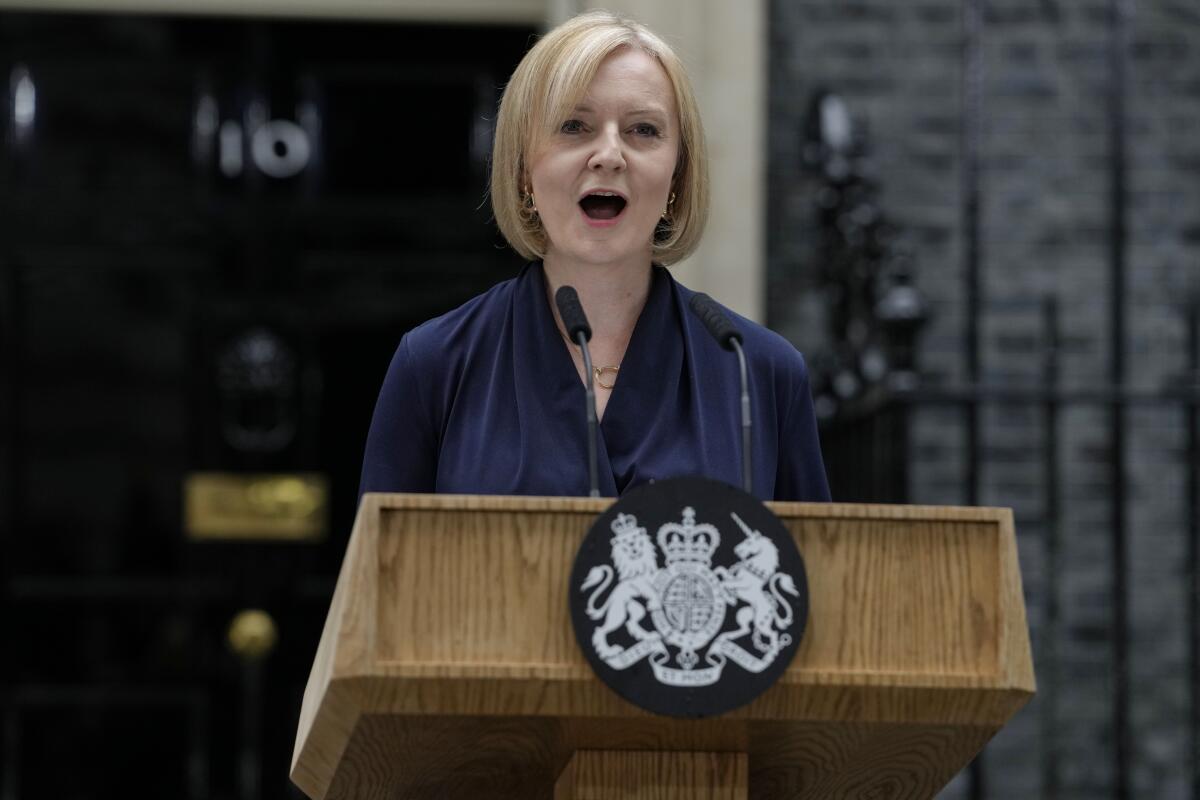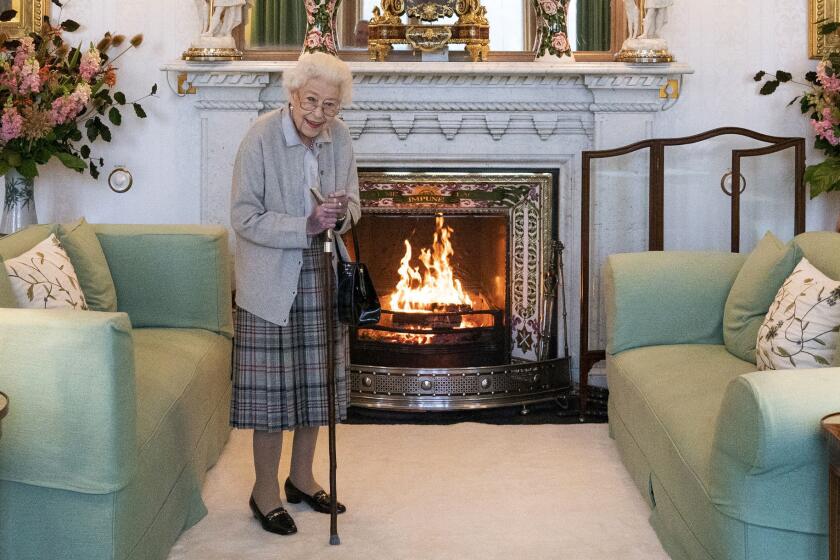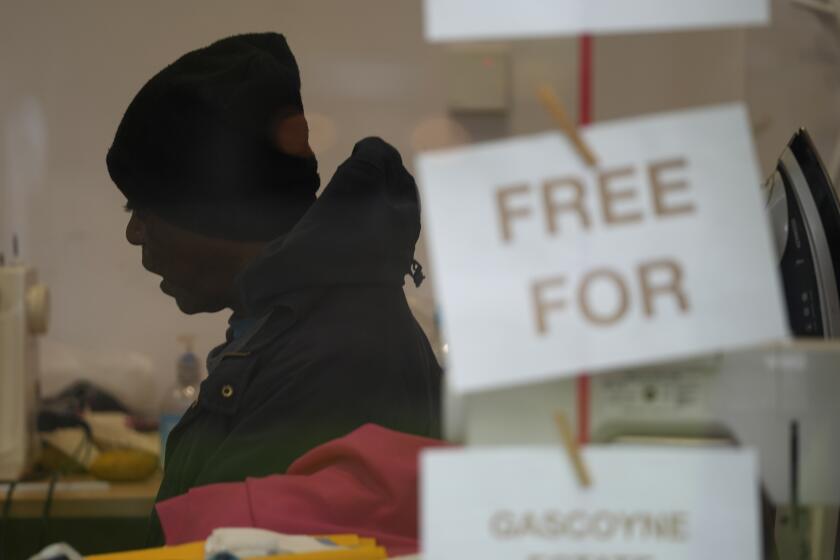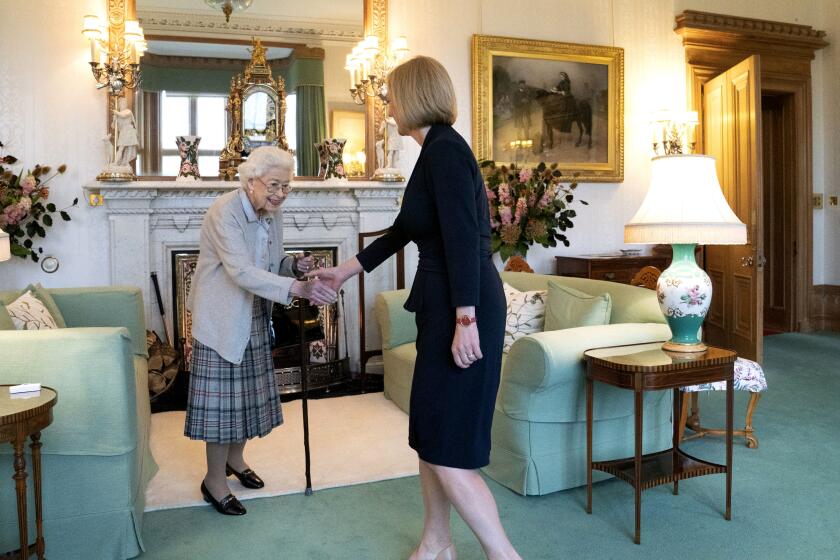Britain to cap domestic energy prices, end fracking ban to tackle energy crisis

LONDON — New British Prime Minister Liz Truss said Thursday that her government will cap domestic energy prices for homes and businesses to ease a cost-of-living crisis that has left people and businesses across the U.K. facing a bleak winter.
The moves are a huge government intervention in the economy by Truss, who sees herself as a small-state, free-market conservative. She says she favors tax cuts over handouts, but she has been forced to act by the scale of the crisis.
Truss, who just took office Tuesday, also said she would approve more oil drilling in the North Sea and lift a ban on fracking in a bid to increase the Britain’s domestic energy supply.
“We are supporting this country through this winter and next and tackling the root causes of high prices so we are never in the same position again,” Truss told lawmakers in the House of Commons.
Truss said the two-year “energy price guarantee” will mean that average household bills will not exceed more than $2,872 (U.S.) a year for heating and electricity.
Bills had been due to rise to $4,000 a year from October, triple the cost from a year ago. Energy costs are skyrocketing because of Russia’s invasion of Ukraine, at a time when many people and businesses are still reeling from the economic aftershocks of COVID-19 and Brexit.
Buckingham Palace says Queen Elizabeth II is under medical supervision as doctors are ‘concerned for Her Majesty’s health.’
Business and public institutions such as hospitals and schools will also get support, but for six months rather than two years.
The government says the cap will cut Britain’s soaring inflation rate by 4 to 5 percentage points. Inflation hit 10.1% in July and has been forecast to rise to 13% before the end of the year.
The government hasn’t said how much the price cap will cost, but estimates have put it at over $116 billion. Truss has rejected opposition calls to impose a windfall tax on oil companies’ profits. The cap will be paid for out of Treasury funds and by borrowing.
The opposition Labor Party says that means British taxpayers will have to foot the bill.
Across Britain, food banks and community food hubs that helped struggling families, older people and the homeless during the pandemic are now seeing soaring demand.
Labor leader Keir Starmer said that “the bill will be picked up by working people” rather than oil companies, which are forecast to make $195 billion in windfall profits over the next two years because of soaring prices.
Thursday’s announcement will bring relief to many, though critics say government help should be directed at the most vulnerable. Those already straining to keep up with relentlessly rising costs say they will still struggle, even if not as much as previously feared.
“I’m not optimistic at all. It’s already too much of a struggle on what we’re getting. I will be in debt without a doubt,” said Sharron Anderson, 60, a former government worker in London who recently became dependent on welfare payments after suffering a heart attack.
After paying for essential bills, Anderson said she’s left with $27 a week to shop for food.
Liz Truss has become Britain’s new prime minister, the third woman to hold the post and the fourth Conservative to assume the office in 12 years.
“They should be taxing those energy companies more. That’s what they should be doing. All those profits they’re getting and they’re not taxing them — that alone makes me have no confidence” in Truss, Anderson added.
Truss’ announcement came after a summer in which the government refused to say how it would respond to the energy crisis. Former Prime Minister Boris Johnson was not able to make major decisions after announcing in July that he would resign. Truss, who won the Conservative Party contest to replace Johnson as leader, declined to announce her plans before she was in office.
The invasion of Ukraine has caused an energy crisis across Europe. Russia has choked off the supplies of cheap natural gas that the continent depended on for years to run factories, generate electricity and heat homes
Britain imports most of its natural gas — though largely from Norway, not Russia — and so is vulnerable to shifts in global prices.
Breaking News
Get breaking news, investigations, analysis and more signature journalism from the Los Angeles Times in your inbox.
You may occasionally receive promotional content from the Los Angeles Times.
“The reason we are in this difficult situation is because of [Russian President Vladimir] Putin’s appalling war in Ukraine,” Truss said. “But we do need to make sure that our energy supplies are more resilient and more secure so we are never in this situation again.”
Truss announced a new “energy supply task force” that will negotiate long-term energy contracts with domestic and international suppliers, and said Britain would ramp up all domestic energy sources. The U.K. has dramatically increased the amount of energy generated by wind power in recent years and plans to build more nuclear power stations.
Truss also said she would issue more than 100 new licenses for North Sea drilling and end a ban on fracking in Britain. Both measures will be condemned by environmentalists, who worry that Truss may backtrack on the U.K.’s legally binding commitment to reduce carbon emissions to net zero by 2050.
Britain suspended fracking in November 2019, saying it wasn’t possible to accurately predict tremors associated with the drilling.
Truss says that she supports the net zero commitment but that it should not come at a huge cost to people and businesses.
More to Read
Sign up for Essential California
The most important California stories and recommendations in your inbox every morning.
You may occasionally receive promotional content from the Los Angeles Times.













